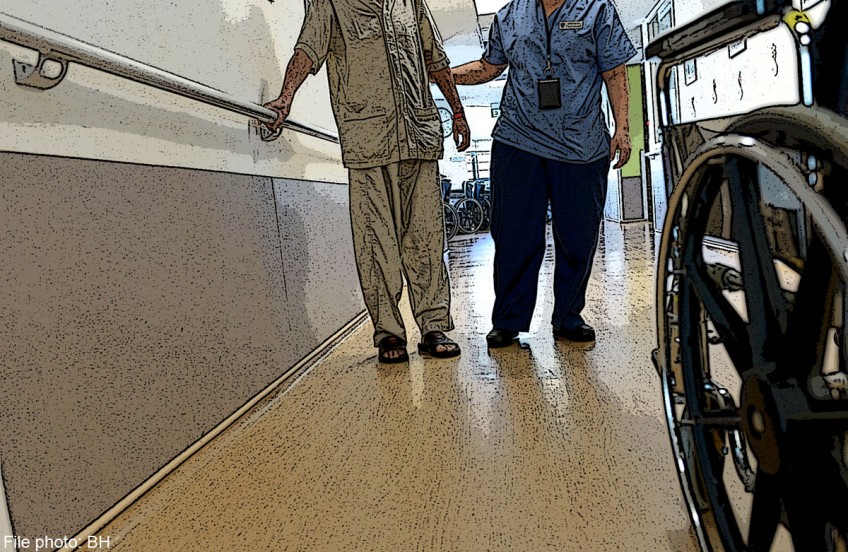Docs, nurses struggling with palliative care


SINGAPORE - Many Singapore doctors and nurses believe their basic training does not prepare them enough to handle patients with life-threatening illnesses.
Furthermore, some of them think there are too few specially trained medical professionals and even hospices and beds for the dying and terminally ill.
This was the worrying picture health professionals painted in a survey commissioned by the philanthropic Lien Foundation group.
"Doctors and nurses are frequently the guardians of care at the end of life, guiding patients and their families through a challenging time," said Lien Foundation chief executive Lee Poh Wah yesterday at an event to share the survey findings.
He said the results underlined the need " to make palliative care part of our health-care system's DNA".
Palliative care refers to the holistic caring for patients going through the last stages of their lives, by meeting their emotional, physical and other needs to minimise their suffering and maximise their quality of life.
The Ministry of Health estimated that by 2020, more than 10,000 people a year would need such care, up from 8,000 in 2009.
About 200 doctors and 425 nurses from across the health-care spectrum were surveyed between February and April.
About six in 10 doctors and four in 10 nurses said their basic training did not prepare them to handle patients with life-threatening diseases.
"The focus during my time in medical school was all about management options first, and palliation was taught or considered as the last resort," said an unnamed doctor in the survey.
"The preparation of our doctors is sorely lacking in end-of-life issues... We are taught to avoid and not embrace it, and then we see that death is more the norm than the exception when we enter the workforce."
The National University of Singapore's Yong Loo Lin School of Medicine, for example, devotes only four days of a student's entire medical course to palliative care.
Its dean Yeoh Khay Guan said however that this was time spent in the hospice, and other aspects of the students' curriculum - such as how to communicate with patients - were relevant as well. More training in palliative care is in the works, he added.
"We plan to expand and enhance the training... from the third to the fifth year of studies, in a variety of practice settings, including hospices, home care and in hospitals," he said.
There are 46 palliative care medicine specialists in Singapore. As of August last year, there were about 600 palliative care-trained nurses.
There were 35,829 registered and enrolled nurses at the end of last year.
The Lien Foundation recommended several measures to improve "the quality of death" in Singapore. These included making sure doctors and nurses have the skills to talk about death and dying with patients despite the stigma, superstition and discomfort surrounding the issue.
Meanwhile, new national guidelines on end-of-life care are expected to be unveiled at the end of this month. These will ensure that doctors identify in advance patients who need such care, as well as caregivers who are at risk of severe grief.
The guidelines come after the Health Ministry accepted recommendations from a broader report called the National Strategy for Palliative Care in 2012, which looked at how to deliver such care in a more coordinated manner.
zengkun@sph.com.sg

This article was first published on June 19, 2014.
Get a copy of The Straits Times or go to straitstimes.com for more stories.